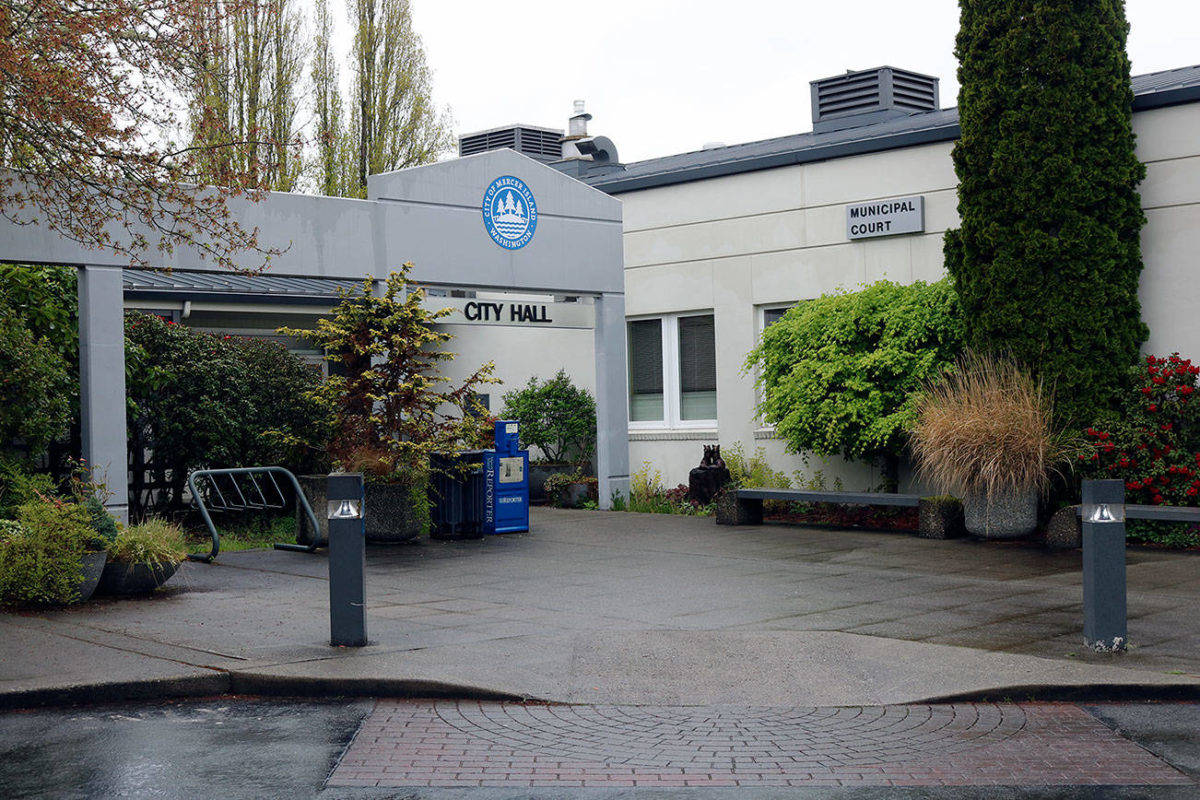Last week, the city council changed its regular meeting time, made some procedural rule changes and solidified its new priorities and work items for the 2020-2021 biennium.
Following the city council’s annual planning session on Jan. 24 and 25, four related items were on the Feb. 4 meeting agenda. Those were: confirming priorities and new work items, approving amendments to the rules of procedure, and two ordinances – amending the regular meeting start time and amending the member appointment process for boards and commissions.
Board and commission member appointment process amendments were put off and will come back after further discussion and development of a new process. The rest was approved.
Regular city council meetings, that usually convene on the first and third Tuesday of each month, will now start at 6:30 p.m. Additionally, any preceding study sessions and executive sessions that would have taken place at 6 p.m. now will begin at 5:30 p.m.
“This was done in an effort to move public appearances up to be more conscientious of community needs, and also to try and end our meetings a little bit earlier in the evening,” city clerk Deb Estrada said.
Interim city manager Jessi Bon briefly went over the priorities and work items that were identified during the planning session plus additional suggestions. She also discussed the decision card process used to narrow the focus from a suggested 52 items to the formally proposed 11.
Bon said council priorities are what is used to guide and plan council decisionmaking not only this year but into the next biennium. She said they represent key themes for the year ahead and are revisited annually at the planning session.
The three council priorities that passed unanimously are: Prepare for the impacts of growth and change with a continued consideration on environmental sustainability; articulate, confirm and communicate a vision for effective and efficient city services, and stabilize the organization, optimize resources, and develop a long-term plan for fiscal sustainability; implement an economic development program.
Bon said council at the planning session had also emphasized that communications and environmental stewardship are foundational and an important component of all city actions.
The 11 council work items, as outlined in the meeting agenda, are:
Review/update Town Center development code
Review/update regulations regarding camping, temporary structures, and overnight parking on public property
City-wide shuttle service
Citywide economic development plan
Staff position for economic development
Compensation policy and philosophy
Citywide classification and compensation study
Evaluate the city’s finance software system to inform the “update or replace” decision
Update Town Center parking regulations
Levy/long-term funding strategy for school-based mental health counselors
Study and evaluate options for permanent protection of city parks and open spaces
Bon said there were also six potential work items that were identified as pertaining to the budget that will be brought back for potential discussion during future budget conversations.
Another new element this year in relation to work items is that each city department now has its own work plan. Bon said they coincide with council work items, as each council work item will list the involved city departments and will also appear on the work plan of the related city departments.
The new work items requested by the city council have been incorporated into the department work plans and most are still noted as “pending further scoping and evaluation.”
EDITOR’S NOTE: This story was cut for space. See the full story online at www.MI-Reporter.com.
“The intent here was to improve our work plan visibility not only for … council but the community and our entire staff,” Bon said. “It’s a really important management tool for us.”
She also noted the department work plans focus mainly on high level or mid level work items and do not cover basic day-to-day procedures. There will be some changes made to these looking ahead to next year, Bon said.
“We’re going through a rebuilding and restructuring,” Bon said. “A lot of this work is rolling forward. With exceptions most of the items added are not budgeted or resourced yet.”
She said the majority of the work items will require time and attention from staff to further define and deliver.
“We will be back and talking with you to get some more clarity around these items,” Bon said.
Estrada presented the amendment to the council’s rules of procedure, noting this is the seventh time these rules have been amended since they were put into effect 16 years ago. Several changes were made.
In addition to the meeting start time being moved forward, the mayor will have public comment/appearances begin at 7 p.m. whenever possible. The rules now also include new guidelines recognizing a desire for councilmembers to use technology to participate remotely.
The Pledge of Allegiance was added to the order of regular council meeting agenda, right after the call to order and role call.
To allow for more time for councilmembers and the community to process materials, city staff will now aim to have city council agenda packets posted online by the Wednesday before each meeting, moved up from Thursday.
Guidelines also were added regarding the NextDoor.com social media platform. The last sentence in the 5.10 Social Media section was changed to, “This lack of archiving access to NextDoor also makes it difficult and risky for councilmembers to post about city business or to reply to other people’s posts, as they are unable to be captured in a manner that is suitable for responding to public records requests or in a manner that it can be deleted after meeting the required retention period.”
Finally, one amendment included a few housekeeping items. Staff reviewed the rules and updated language to clarify references and correct scrivener errors.
More information can be found in the media agenda packet online.


